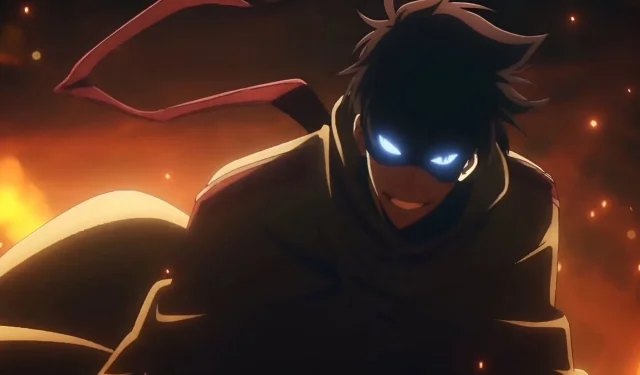
The widely popular anime Solo Leveling has recently come under scrutiny from both viewers and critics, with accusations that the series lacks any substantial narrative depth despite its striking visuals. Centered on the character of Sung Jinwoo, who evolves from the weakest hunter into an unparalleled force, detractors claim the storyline possesses “absolutely zero depth”and is excessively focused on celebrating the protagonist.
Critics assert that the show’s structure is designed solely to ensure Jinwoo’s triumph, with one commentator stating, “everything is set up for Jinwoo to succeed, ”and that the series fails in nearly every other aspect of storytelling. As these critiques begin to resonate on social media, a spirited discourse has emerged among its fanbase regarding what defines quality storytelling in anime and whether the approach taken by Solo Leveling warrants such disapproval.
Debate Intensifies: Depth vs. Spectacle in Jinwoo’s Evolution
Critics have articulated that Solo Leveling lacks meaningful content, despite its impressive animation and action sequences. The main grievance highlights the narrative’s tendency to present minimal obstacles for Jinwoo, which dilutes his character development. They argue that the System acts merely as a plot device, offering enigmatic power boosts that strip away genuine challenges from the protagonist’s path.
This perspective resonates within a segment of the anime community that values complex character development and moral dilemmas forged through adversity. These viewers contend that the means by which Jinwoo acquires his strengths appears mechanical, devoid of emotional resonance stemming from authentic struggles.
Community Responses: Fan Opinions on the Anime’s Value
The Solo Leveling community has received these critiques with mixed responses, ranging from concession to outright defense. Many fans argue that the series explicitly prioritizes high-octane entertainment over profound philosophical musings, suggesting that critics fail to grasp the narrative’s intention.
“Solo Leveling is fun but it has absolutely zero depth to it in the slightest. Everything is set up for Jinwoo to succeed. It’s a glorified glaze for the main character; it gets virtually every other aspect of writing dead wrong!”noted one user.
“I dont think this anyone’s fav anime tbf most ppl just watch it bc its hype or past time, ”stated another user.
“Really just a vibe to see his rise until he becomes the strongest like 2/3rd into the story. After that, the story takes a massive nosedive, ”remarked a viewer.
“This is what I say when people try to say Solo Leveling is mid. I’m like yeah. I’m not watching it because it’s a masterpiece with insanely deep storytelling. It’s just edgy asf and that’s cool, ”commented one fan.
“These first two arcs are to demonstrate the gap between him and every other hunter. After a while, you’ll stop hearing about ‘S Rank’ or ‘national level hunters’ because hunters will be so weak it won’t matter. Give it time, ”explained a supporter.
“You can always tell a manhwa is goated when the haters talk about it more than the fans, ”defended another fan.
For many fans, Jinwoo’s rapid advancement amid a landscape devoid of significant challenges serves to enhance the world-building, reinforcing the theme of power fantasy rather than signaling narrative flaws. Such supporters advocate for the series, highlighting its entertainment value and the exhilarating experience it offers.
Conclusion: Diverging Perspectives on Narrative in Anime
This ongoing debate mirrors the broader conversation surrounding audience expectations in anime storytelling. Some viewers craving intricate character development, moral complexity, and rich world-building may find Solo Leveling lacking. Conversely, others enjoy the engaging power fantasy that showcases a protagonist’s ascent as both captivating and satisfying. Through remarkable animation and straightforward storytelling, the series fully embraces its role in delivering a quintessential power-based narrative.
Ultimately, Solo Leveling opts for simplicity in its narrative, prioritizing an action-packed experience and empowering audiences to engage with its storytelling approach however they see fit.




Leave a Reply ▼